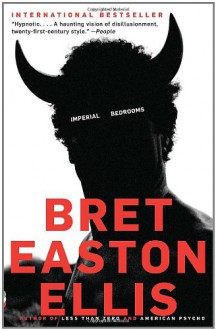
The Basics
In this sequel to Less Than Zero, we catch up with Clay and his old friends, all of whom are now middle-aged and much the same as we left them. In this universe, Less Than Zero was a successful book and a movie that missed the point, much as it is in ours. Clay isn’t satisfied with the way he was portrayed, so the question becomes, “can he show his audience that he’s a different man than that?”
My Thoughts
I’m about to say the most controversial thing I could possibly say: Imperial Bedrooms is better than Less Than Zero. I’m gonna let that hit you while I don my armor.
As I attempted to explain in “The Basics”, Clay and Julian and everyone we encountered in the previous book are officially over-the-hill. In this universe, the previous book exists in universe, and Clay acts somewhat insulted by the way he’s written, as this kid who can’t feel because he’s so detached and disassociated. This is something the book does incredibly well. Clay genuinely believes he’s a good, giving, kind person. He sees nothing of Less Than Zero Clay in himself. He wants us to believe that was all a lie. He’s not that person; he’s better than that.
And then proceeds to reveal himself as being even worse. Here’s where I think the book loses people. For a lot of folks, I think Clay seemed like an anti-hero. Imperial Bedrooms paints him a lot differently. It seems to be saying that if someone really were that detached from everyone around them, that sociopathic, they would be a pretty terrible person. No one wants to hear that. They want Clay to be a symbol for something rather than a character. Personally, I believe I took Less Than Zero a lot differently than most, because his behavior in Imperial Bedrooms didn’t seem so off-the-wall to me. It felt like an extension of what the years between that we didn’t see could’ve turned Clay into. That he was predisposed to being uncaring and cruel, and it only got more pronounced as he got older. It makes sense to me.
I also thought that Clay trying to solve a mystery that simply wasn’t solvable because he didn’t have all the information was clever. Not only did it feel realistic, like “mysteries” don’t wrap up neatly in reality, but it also felt like another example of Clay’s monstrous ego. He wants to believe so badly he can change things, when really it’s all a selfish move on his part anyway.
What I’m trying to say is that this book was a brilliant character study. I believe if all of Ellis’ books could be taken that way, they’d be more widely enjoyed.
Final Rating
5/5

 Log in with Facebook
Log in with Facebook 








